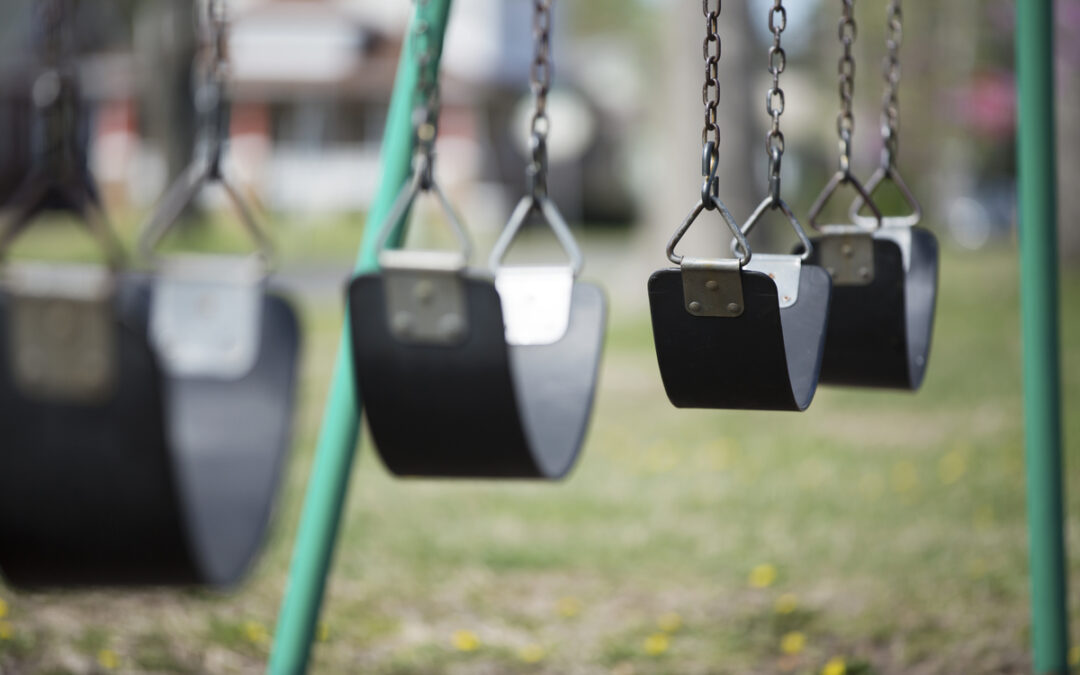We watched our two kids climb the steps of the play structure up to the platform where they could choose to slide or cross the structure and keep climbing. Calling out each other’s names and imaginary scenarios with delight as the late spring sun shone on their messy hair. You could feel how alive they were to be playing with their friends. Our virtual teacher had hosted a meet up for kids that had only interacted on Zoom all year at the park next to school.
In the shade on a bench I sat with another mother whom I knew in passing from volunteering at school the past few years. We swapped frustration about virtual schooling, worries about our career and desires to return to full time, undistracted work. We ticked off the ways we were worried about our kids academic and social progress, the two litanies intertwined into the new liturgy of pandemic parenthood.
Then she mentioned her older son, who would have turned sixteen this year.
“Tell me about your child.”
It’s the one phrase I have learned as a pastor and friend that creates space for as much or as little as people want to share. It’s the one phrase that communicates “I am interested in who your child was and who they are to you. Please, share at your pace.”
She told me about his accident and diagnosis, the years of care, the grief and it’s collateral damage. The bittersweet miracle of her two living children, close to my children’s ages. I nodded knowingly when she talked about hospital life and we compared notes on the finer nuances of children’s hospitals in our city.
Same sees same, and in the world of parenting the proximity to the death of a child creates a certain kind of knowing. While my child is still living, we both live with the knowledge that the vitality of a child could suddenly and without warning or reason change.
I’ve thought often about the parents in this pandemic who do not need a worldwide global pandemic to remind them in some sentimental fashion that life is fragile and fleeting. For whom this pandemic has been yet another monster pressing at the door they are trying to hold shut. I think about the parents in the heart community, who fight and advocate for every test and procedure to just gain their child a few more years, or young adulthood, or a full and robust life. For parents who have lost a child or have come in close proximity to the possibility, these aren’t hypotheticals considered from a distance. They are written into the fibers of our bodies, etched into our brain chemistry, forever a possibility in our worst imagination.
In one another, we find solace. In Facebook groups and on park benches we find no need to explain our caution. There is no stiff anticipation of shallow platitudes or quick dismissals. There is just a quiet recognition, a sense of grace to be in the presence of someone who through their own experience knows you own fears if not intimately, by proximity.
We laughed about how we were sending our kids back as soon as possible in the fall, for their own thriving and ours. And then she said “I’ve given them a year. I’ve kept them as safe as I could but the truth is I can’t keep them safe forever.”
I felt something turn in me, a lock unclicking.
Not because this was new knowledge. I know I cannot keep my loved ones safe, that is perhaps the whole point. It unlocked an acknowledgement that while many of our fellow humans have not done pandemic well, so many of the friends, faith leaders, non-profit directors and parents I know have done our best. We have navigated unknown territory with compassion and thoughtfulness. We have given one another a year. A year to reassess and reflect. A year to reprioritize and shift. A year to live.



Recent Comments